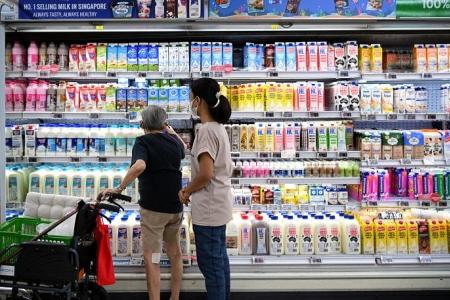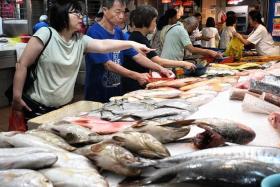S’pore core inflation slows to 3% in September, but overall inflation up after record COE prices
Core consumer prices in Singapore rose at a slower pace for a fifth straight month in September, largely led by lower inflation for food, retail and other goods.
Official data on Monday showed that core inflation, which excludes private transport and accommodation costs to better reflect the expenses of Singapore households, rose 3 per cent year on year in September. This was lower than the 3.4 per cent in August.
Still, overall or headline inflation edged up to 4.1 per cent year on year in September, slightly higher than the 4 per cent in August. Record certificate of entitlement (COE) prices drove up private transport inflation, which more than offset the decline in core and accommodation inflation.
On a month-on-month basis, which represents how much momentum there still is in prices, core consumer prices crept up 0.1 per cent in September, on account of higher costs of food and services.
At the same time, headline inflation rose by 0.5 per cent month on month, mainly due to higher private transport costs.
Core inflation is expected to ease further to between 2.5 per cent and 3 per cent year on year by December, and slow to an average of 2.5 per cent and 3.5 per cent for the full year in 2024, the Monetary Authority of Singapore (MAS) and Ministry of Trade and Industry (MTI) said on Monday, reiterating forecasts released on Oct 13.
They added that headline inflation is expected to average around 5 per cent for full-year 2023, and 3 per cent to 4 per cent for 2024.
“In early 2024, core inflation is expected to be impacted by the increase in the goods and services tax (GST) rate as well as seasonal effects. However, core inflation should resume a broadly moderating trend over 2024, as import cost pressures decline and tightness in the domestic labour market continues to ease,” MAS and MTI said.
They added that headline inflation is likely to rise further in the coming months as a result of higher COE premiums.
“Nonetheless, private transport inflation should slowly moderate over the course of next year alongside an expected increase in COE quotas. Accommodation inflation is also projected to ease as the supply of completed housing units increases.”
MAS on Oct 13 left its monetary policy settings unchanged in October as it forecast that inflation in Singapore would continue to ease.
MAS and MTI on Monday noted the upside risks to inflation from fresh shocks to global energy and food commodity prices due to geopolitical conflicts and adverse weather events.
Monday’s data showed private transport inflation rose the most, jumping to 8.5 per cent in September from 6.3 per cent in August. This was because of the faster pace of hikes in car and petrol prices.
COE prices for cars and the Open category hit record highs in September, spurred by motor dealers rushing to meet year-end targets and take advantage of current tax rebates for electric cars.
Retail and other goods clocked the steepest decline in inflation on a month-on-month basis. Their inflation dropped to 0.9 per cent in September, from 2 per cent in August.
Food inflation dropped to 4.3 per cent from 4.8 per cent in August as the prices of noncooked food and prepared meals rose at a slower pace.
Accommodation inflation edged down to 4.3 per cent from 4.4 per cent as housing rents moderated.
Electricity and gas inflation remained unchanged. Their costs fell 1.4 per cent year on year in September as a smaller decline in electricity prices was broadly offset by a steeper fall in gas prices.
Services inflation also saw no change at 3.1 per cent, as a larger increase in the cost of telecommunication services was offset by a smaller pickup in holiday expenses.
Get The New Paper on your phone with the free TNP app. Download from the Apple App Store or Google Play Store now


